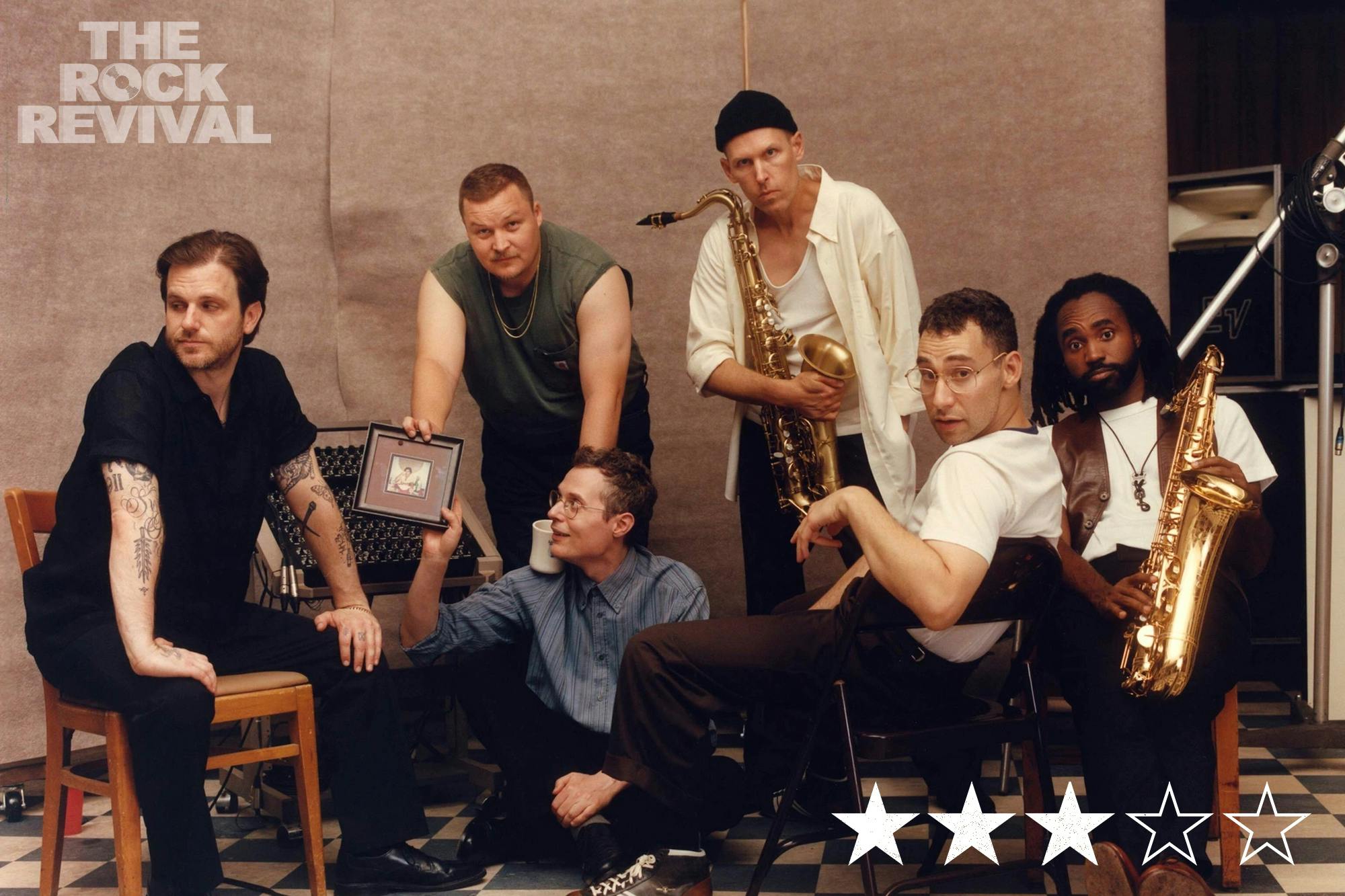
Success is a tricky road to navigate, just ask Jack Antonoff.
Better known as Taylor Swift’s right-hand man while simultaneously keeping a foothold on several of the world’s biggest popstars, the three-time producer of the year doubles as not only one of the music industry’s most in-demand names but one of the most polarising too. Jumping from project to project like a meerkat looking for its next meal, Antonoff’s production style centres around a live studio sound, preferring to capture the energy of a room in favour of instrumental overdubs. Yet, as his star power has grown, so has the general public fatigue with his ever-present role in the pop music landscape. In the last four years alone, Antonoff has been credited on seven different Taylor Swift projects, two Lana Del Ray albums and garnering further production credits on the albums of household names that include Lorde, Florence and The Machine and The 1975 to name a few. Showing no signs of slowing down, Antonoff is back with his own musical endeavour, ‘Bleachers’, a band known for pairing their saxophone laden, Springsteen-esque anthems with their energetic and euphoric live show. Now three years since their last record ‘Take The Sadness Out Of The Saturday Night’, the Antonoff-led supergroup have returned with their fourth studio album, a self-titled record that like most of his work, is incredibly polarizing.
While a self-titled album normally symbolises a band starting fresh with a new sonic and aesthetic direction, lead single ‘Modern Girl’ had fans speculating that it was business as usual for Antonoff and the rest of the group. From what can only be expected for a frontman that grew up in New Jersey, Antonoff wears his Springsteen influence on his sleeve, led by big, euphoric saxophone refrains that has the thirty-nine year old letting the audience know that Bleachers ‘played it like a heart-attack’. After the release of the upbeat and pulsating ‘Modern Girl’, it would have been easy to imagine the rest of album following the same sonic narrative. But if Modern Girl is considered a heart-attack, then the rest of the album is the musical equivalent of a wellness retreat, as Bleachers self-titled record is their most intimate and stripped back effort yet, favouring intimacy and vulnerability over the energy and euphoria that the New York based band are often associated with.
While Antonoff should be praised for shifting the bands sonic palate to a direction that has more weight than that of a Springsteen tribute act, ‘Bleachers’ is an album that is simultaneously filled with some of Antonoff’s best songwriting while also containing some of his most bizarre too. Highlights come in the form of songs such as ‘Me Before You’, a slow yet dreamy number that sees brass instruments appearing in and out of the mix in frenetic bursts. Gorgeous layered vocals and sparkling synths are also present, as the song follows the narrative of the life Antonoff had before he met his newly-married wife. ‘my bed was a place for the lonely / built it that way, came to think it was holy’. Yet, ‘Alma Mater’ follows a similar structure and falls flat on its face, as Antonoff’s falsetto and autotuned vocals are more grating than he would have hoped for, while the repeated chorus mention of ‘Fuck Balenciaga’ borders on cringe-inducing, the first of many forced pop culture references throughout the album. It becomes apparent quite quickly that Antonoff is at his best lyrically when care is taken with constructing metaphors, such as on tracks such as ‘Isimo’. ‘But you were just a kid when they told you / you’ve been born to bleed , little solider / with you garden heart and sentimental boulder’. Yet, the pop-culture references that feature throughout often lack subtlety, resulting you to be taken out of the sonic world that Antonoff has created. Take ‘Self-Respect’ for example, which features a beautifully constructed melody and instrumental arrangement that is ultimately dampened by an incredibly bizarre passage in which he compares legendary basketballer Kobe Bryant dying in a helicopter crash to Kendall Jenner’s controversial Pepsi commercial. ‘I think it was the day that Kobe fell from the sky / Or the day Kendall Pepsi-smiled’. While the song follows the narrative of how humans must deal with grief and then are immediately thrusted back into the ridiculousness of life, you can’t help but think there were more subtle ways for Antonoff to get his point across. However, some of his creative choices pay off, namely on the boldly titled ‘Jesus is Dead’, as he provides commentary on modern-day New York and the musical scene within it. Antonoff’s vocals take the backseat, as gliding percussion parts are at the forefront of the mix, creating a breezy yet nostalgic colouring that has become a focal part of Antonoff’s signature sound.
Elsewhere on the record, ‘Call Me After Midnight’ recalls The 1975’s latest album ‘Being Funny In A Foreign Language’ (a record Antonoff also produced), as Chicago-born singer-songwriter ‘Claud’ is called upon for the album’s most pop-friendly chorus, that whilst catchy, would have been better utilised over a less subdued instrumental section. Meanwhile, the less said about the middle-Americana country twang that Antonoff delivers the instantly forgettable ‘We’re Gonna Know Each Other Forever’ in, the better. To his credit, for an album that is so inconsistent in quality, Antonoff salvages how the band’s fourth album may be looked upon in coming years with two brilliant closing tracks. The twinkling, laserlike synths on the penultimate track ‘Ordinary Heaven’ highlight why Antonoff is such an in-demand producer and while the song may follow quite a simple narrative of hometown boredom, it is flipped on its head by an incredibly moving spoken word piece by legendary skateboarder Rodney Mullen. Over some of Evan Smith’s most reserved yet moving saxophone parts, Mullin’s monologue relays the importance of holding onto childhood dreams, musing on the relationship between seeking recognition and the fine line between being adored and valued. ‘The Waiter’ then completes the 1-2 punch, closing out the album with a poignant reflection on a musical journey that has taken Antonoff from touring with DIY punk-bands as a teenager to becoming one of the music industry’s biggest names in his thirties. Featuring heavily autotuned vocals, a production choice that perfectly fits the atmosphere he is trying to create, the frontman saves what could be considered the best line of the album for the final track. ‘you’ve got this notion that time’s gonna stop / the winds gonna change and tell you what you’re not’. When Antonoff is focused on crafting lyrics of meaning rather than inserting pop culture references in his songs, his songwriting ability is undoubtedly second to none.
While Antonoff and the rest of Bleachers should be praised for several creative leaps throughout the record, it’s safe to say that not all of them stick to the landing. However, it is worth noting that Bleachers live show is where they are at their best and with a massive UK and US tour on their horizon, it remains to be seen how the songs on this record may evolve in the form of a live setting.
While the strange right turns on Bleachers self-titled record stop it from reaching its full potential, the highlights on it provide an insight into why the world’s biggest musicians will continue to knock on Jack Antonoff’s door.
Words by Romesh Cruse
